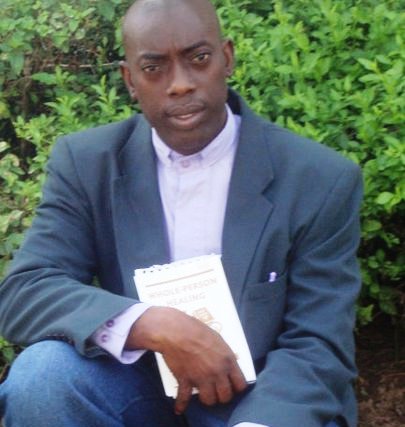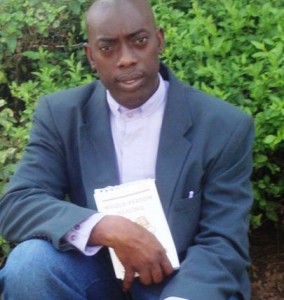The Church’s Response to Sexual Traumas – by Elisha James
One of the vexing issues the universal Church has to respond to is Sexual trauma. West Virginia University describes Sexual Traumas as, “…sexual harassment, rape, inappropriate touching, being pressured to perform or engage in sexual activity or threat of harm if you do not do a sexual act.” Here in the Caribbean many acts and experiences fit this description. The Caribbean Church operates within a context where various forms of sexual abuses, sexually illicit behaviours and harmful sexual behaviours have become part and parcel of it society (Jones & Jemmott, 2009). These inappropriate and sexual malpractices include issues of incest, rape, paedophilia and all the sexual related issues that are illegal, immoral or illogical according to the Caribbean laws, tradition and culture. Notwithstanding, while this leaves the Caribbean society in a state of traumas, for the Caribbean church it is a pandemic that begs for immediate intervention.
The Social Responsibility and Biblical Mandate
The Church as the agent of grace and reconciliation is the best suited body to enact this response. The Church’s mandate to respond is found throughout scriptures. These include, Luke 4.17-19, Isaiah 41.10, Jeremiah 30.17 and James 5.13-16 just to mention a few. As it is obvious, it is biblically mandated that the church be such an agent of grace and reconciliation or what some will describe as a place of healing. It is therefore part of the Pastoral Care expressions of the Caribbean Church to enact such responses.
Grenada
In Grenada in particular, sexual traumas are lived realities. Grenada is a Tri-island state, which lies south of the Caribbean, one hour air travel from Trinidad, Barbados or Venezuela, South America. The state of Grenada, which includes the islands of Grenada, Carriacou, and Petite Martinique, has an area of 133 square miles and a population of 105,000 (as of 2004). The state is multi-religious, with 44 percent Roman Catholic, 12 percent Anglican, 11 percent Pentecostal, and 11 percent Seventh-day Adventist. Methodist, Presbyterian, Church of God, Baptist, and evangelical making up the remaining percentage. To a lesser extent Jehovah’s Witnesses, Brethren, Baha’i, Hindu, Moravian, Muslim, Rastafarian, Salvation Army, the Church of Jesus Christ of Latter-day Saints (Mormons), and Mennonite are the least on the islands. Some 4 percent or so of the population view themselves as nonbelievers (U.S. State Department, 2010).
For Grenada, addressing the issue of sexual traumas is challenging for many reasons. One of the reasons this is that sexual traumas may not readily manifest themselves as the results of these illicit, illegal or immoral sexual activities, experiences or expressions. In essence, what may be traumatic for some, may not be necessarily so for others. Another reason is that sexual traumas are often felt or realized years after the initial acts occurred. Additionally, because age, maturity, circumstances and many other dynamics influence what is called “traumatic”, this makes pinning down the issue of sexual traumas cumbersome and complex. Lastly, Grenada, as it currently stands, does not have any Church groups that deal with sexual traumas. What the country does have however, are trained personnel in the Church who should be able to address this issue on a more individual basis.
Having said this, the Church in Grenada must be recognized as the only genuine agent in the tri-island state that is able to effectively address sexual traumas, as the Church adds a unique dimension from other approaches – the element of spirituality. The current four major counseling and therapy schools: psychodynamic, humanistic, cognitive behaviour and the postmodern school, all lean heavily on what is considered a human-centered approach. Spirituality through Pastoral Care and Counselling emphasizes a broader understanding of the self to include a worshiped deity or being. In this case for the Church, this being is God. With this said, the Church in Grenada can help by taking a gracious posture when dealing with issues of sexual trauma.
Psycho-social Response
The first process the Church should engage is to acknowledge and accept what the people revealed. In other words, rather than pretend that sexual trauma is not a Caribbean reality, the Church must accept this reality. Accept that Grenada is not immune to this malady. While some of the accusations and allegations associated with this taboo subject are hard to prove, ultimately the Church must see and respect everyone as created in the image and likeness of God and therefore listening to everyone as people reveal their experiences MUST BE the Church’s priority.
Another element the Church can help with is to affirm and encourage victims to drop the guilt normally associated with victims’ mental well-being. Sexual abuse is NOT the victims’ fault, irrespective of what society may say. Sexual trauma resulting from sexual related issues is not due to a person’s weakness. It is because people are humans. Pastoral Care from the Church must ensure this is understood by victims, lest the problems of sexual traumas are compounded more.
Additionally, the Church must be willing to provide counseling for both the victims and perpetrators of these acts against humanity. The reality is that most perpetrators are victims themselves, and are in need of help. Those involved in these acts are often crying for help. Therefore grace has to be extended to all involved. Lastly, the Church should encourage victims and perpetrators to engage in the discipline of prayer, since prayer actually helps victims biologically and psychologically (Gibbs, 1995).
General and Theological Education
The Church has to make a deliberate and positive effort to educate members of the church and community about sexual trauma. More so, in doing this, the Church must face its level of responsibilities especially when examining sexual traumas from theological, ethical, moral and social perspectives. The Church has to be prepared to respond to issues of sexual abuse found in Holy Scripture; e.g. David with Bathsheba (2 Samuel 11), Tamar’s story (2 Samuel 13), and Lot and his two daughters (Genesis 19). Then there is the troubling account of the conception of Mary (an underage female) carrying the baby Jesus, through an immaculate conception, that some argued was forced upon Mary, rather than she given a choice to accept or reject. In short, the Church has to own up to its responsibilities.
Where the Church is presently involved in such abusing sexual behaviour, these persons must be called out and held accountable by the Church in addition to other legal and social entities. While for many denominations in the Caribbean Church, this is punitive, the more holistic approach lies in restorative justice.
Interpersonal and Marital Relationships
Sexual related abuses affect interpersonal and marital relationships in many ways. The church needs to be educated about this reality. For example, because persons may have been sexually abused or experiencing sexual abuse, they may display behaviours that are antisocial, or generally unchristian. The Church has to investigate and give relevant pastoral care and oversight to such people. In another example, a couple may be separated because one person abuses the other sexually. Though counseling may ensue, psychologically it may be impossible for one partner to remain with the other, thereby calling for extended legal separation and ultimately divorce. This is especially true during times when both parties attempt to have sexual marital relations, but one party continues to see a sexual perpetrator or predator, rather than a lover.
Prevention and Mitigation and Response
The Church must be, and must be seen as a place of healing and restoration for victims. This means that both the leadership and the membership of the Church need to be on a purposeful drive to prepare to prevent, mitigate and respond to sexual traumas. This calls for a new understanding of ministry where the Church has to professionally train its members to discern sexual traumas within the Church and community, in order to respond appropriately. Part of the Church’s response will be to encourage victims to come forward and talk confidentially about their traumatic experiences. This should be done in with great care and planning, since as hinted earlier, any issue of sexual nature is considered taboo in Grenada.
Legal and Social Partners
The Church has to work with legal and social agencies to encourage and initiate the establishment of “Safe Houses” for victims. In Grenada, this means directly working with the Ministry of Social Development and its associated and statutory bodies including: Mobile Care Givers Program, Homes for the Aged, Children’s and Adolescent Services, ECHO – on services to the elderly, Grenada Adoption Board, NCH – National Children’s Homes, The Child Welfare Authority, Legal Aid and Counselling Clinic, Grenada National Council for the Disabled and the Royal Grenada Police Force, the Courts legal framework. Also the Church has to collaborate with the Ministry of Education, (MOE) Grenada, to help address sexual traumas. In the MOE, the Guidance and Counselling Unit has responsibilities to provide counseling and guidance services to students in primary and secondary schools; train teachers in basic guidance and counseling skills and to conduct parenting education is pivotal for the Church.
In conclusion, the Church is able to provide Pastoral Care to victims of sexual traumas. While the Church may not have a structured program to do it, it is still a biblical mandate which ought to be obeyed. It is also a social responsibility of the Church to do. The Church in carrying out this response has to work closely with other entities. What the Church can offer in addition to other aspects of care is the amplification of spirituality.
Works Cited
Gibbs, N. (1995) The message of miracles. Time, as cited in The Journal of Christian Healing, Volume 17, #3, Fall, 1995, pp. 17-28.
Jones, A. D. & Jemmott, T.E (2009). Child Sexual abuse in the eastern Caribbean-The report of a study carried out across the Eastern Caribbean during the period October 2008 to June 2009. Action for children. Retrieved from http://www.actionforchildren.org.uk/media/ 143143/child_ sexual_abuse_in_the_eastern_caribbean.pdf.
US State Department (Bureau of Democracy, Human Rights and Labor (November 17, 2010 report).
West Virginia University http://well.wvu.edu/articles/sexual_trauma


